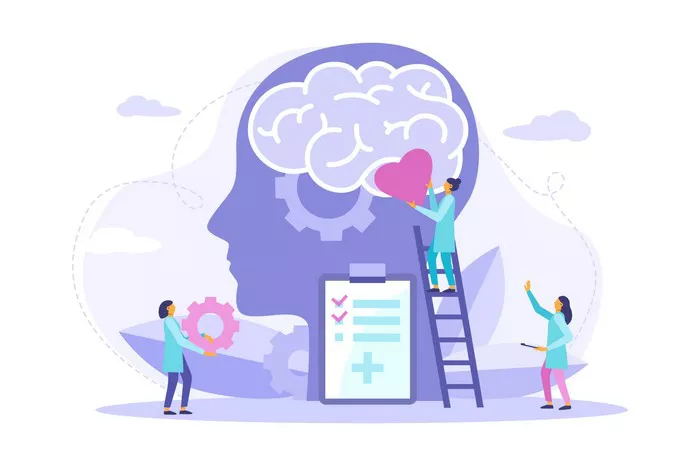In today’s fast-paced world, where distractions abound, maintaining mental focus can be challenging. From constant notifications on our devices to juggling various tasks at work and home, it’s easy to feel your attention spread thin. Improving mental focus is crucial not only for productivity but also for mental well-being and achieving long-term goals. This article explores various strategies and practices to enhance mental focus and provides insights into the underlying factors that influence cognitive performance.
Understanding Mental Focus
Mental focus refers to the ability to concentrate one’s attention on a specific task or thought while filtering out extraneous information and distractions. It involves aspects of cognitive functions like attention span, concentration, and the executive function which governs planning, problem-solving, and decision-making. Improving focus is not just about working more efficiently; it’s also about enhancing the quality of both professional and personal life.
The Impact of Distractions
Before delving into how to improve focus, it’s essential to understand what detracts from it. Distractions can be external, such as noises or interruptions from people around us, or internal, such as wandering thoughts or emotional upheavals. Recognizing the sources of distraction is the first step in managing them effectively.
Strategies to Enhance Mental Focus
Optimize Your Environment
Create a Conducive Workspace: The environment in which you work significantly affects your ability to focus. A cluttered desk can lead to a cluttered mind. Organize your workspace to minimize clutter and remove unnecessary distractions. Ensure adequate lighting and, if possible, incorporate elements of nature such as a small plant or a window with a view of the outdoors.
Control Noise Levels: Some people work best in complete silence, while others prefer background noise. If ambient noise distracts you, consider noise-canceling headphones or use white noise apps to drown out distracting sounds.
Prioritize Nutrition and Hydration
Brain-Boosting Diet: What you eat impacts your brain function. Incorporate foods rich in antioxidants, good fats, vitamins, and minerals that boost cognitive function and focus. These include berries, nuts, fish, dark chocolate, and green leafy vegetables. Avoid heavy meals that can lead to sluggishness, especially during work hours.
Stay Hydrated: Dehydration can lead to reduced attention and cognitive function. Make sure to drink adequate water throughout the day to keep your brain hydrated and functional.
Implement Effective Work Methods
The Pomodoro Technique: This time management method involves breaking work into intervals, traditionally 25 minutes in length, separated by short breaks. These intervals are known as “Pomodoros.” After four Pomodoros, take a longer break. This technique helps maintain consistent attention and staves off burnout.
Task Batching and Prioritization: Group similar tasks together and tackle them in dedicated time blocks. This minimizes the cognitive load involved in switching tasks and helps maintain focus. Prioritize tasks based on urgency and importance to manage your workload effectively.
Enhance Physical Health
Regular Exercise: Physical activity increases blood flow to the brain, which can help sharpen awareness and readiness to focus. Regular exercise also releases endorphins, improving mood and decreasing stress, which can benefit cognitive functions.
Adequate Sleep: Sleep is crucial for brain health. Lack of sleep can significantly weaken concentration, working memory, mathematical capacity, and logical reasoning. Aim for 7-9 hours of quality sleep per night to improve focus during waking hours.
Develop Mental Disciplines
Mindfulness and Meditation: Regular practice of mindfulness or meditation improves concentration, cognition, and emotional resilience. Start with a few minutes each day and gradually increase the duration. These practices can help you train your brain to focus better.
Cognitive Training Exercises: Engage in brain games or puzzles like Sudoku, crosswords, or chess that challenge and help fine-tune your focus. Apps designed to improve cognitive skills can also be beneficial.
Manage Stress and Emotional Well-being
Stress Management Techniques: High stress is a common reason for decreased concentration. Techniques such as deep breathing exercises, yoga, and meditation can reduce stress and improve your mental focus.
Emotional Regulation: Being able to manage and regulate emotions is crucial for maintaining focus. Emotional disturbances can significantly impact concentration. Practices like journaling, talking to a friend, or seeking professional help can aid in emotional regulation.
Stay Socially Connected
Supportive Relationships: Maintaining a network of supportive relationships can help manage stress and keep you mentally sharp. Social interaction stimulates the brain and wards off feelings of isolation that can affect focus.
Continual Learning and Curiosity
Lifelong Learning: Keep your brain engaged by learning new skills, reading, or picking up new hobbies. Continuous learning keeps the brain active and promotes neural plasticity, which is essential for maintaining cognitive health.
Conclusion
Improving mental focus is a multifaceted endeavor that involves tweaking lifestyle habits, managing your environment, and engaging in specific mental exercises. By incorporating these strategies into your daily routine, you can significantly enhance your ability to concentrate and perform effectively in all areas of life. Remember, like any skill, focus can be improved with practice and persistence. Start small, be consistent, and gradually build up your cognitive resilience and focusing capabilities.
[inline_related_posts title=”You Might Be Interested In” title_align=”left” style=”list” number=”6″ align=”none” ids=”8148,8144,8140″ by=”categories” orderby=”rand” order=”DESC” hide_thumb=”no” thumb_right=”no” views=”no” date=”yes” grid_columns=”2″ post_type=”” tax=””]
































